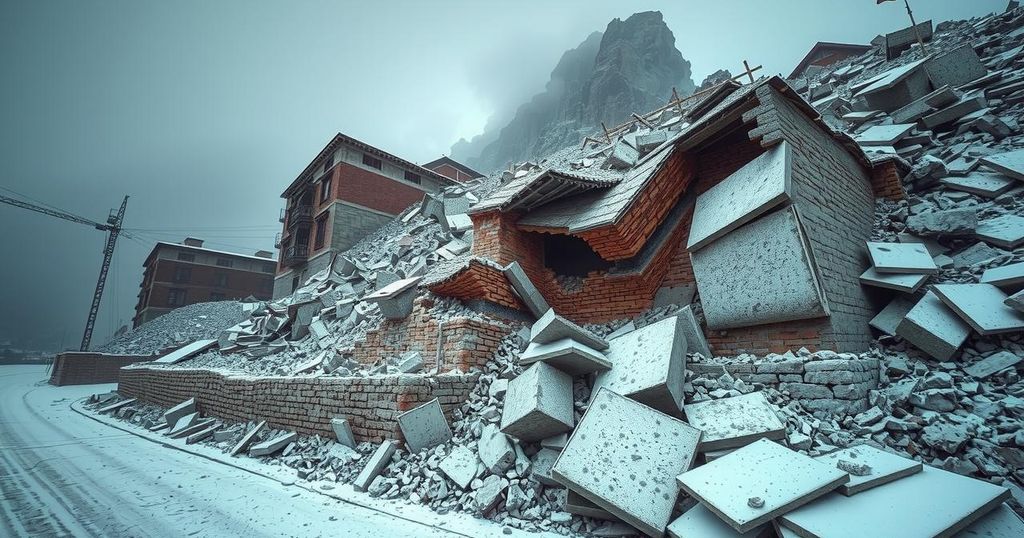Devastating Earthquake Hits Tibet, Claiming Nearly 100 Lives
A powerful earthquake of magnitude 7.1 struck Tibet on January 7, resulting in the loss of nearly 100 lives and damaging over 1,000 homes. Tremors were felt in Kathmandu and parts of India, alongside about 50 aftershocks occurring shortly thereafter.
On January 7, a devastating earthquake registered in Tibet, resulting in the unfortunate loss of nearly 100 lives. The seismic event, which occurred at 09:05 local time in the Dhingri district—close to the Nepal border—was recorded with a magnitude of 7.1 according to the US Geological Survey, while Chinese authorities noted a slightly lower magnitude of 6.8. Reports indicate that the tremors were felt in Kathmandu, the capital of Nepal, and across regions in India. This powerful earthquake not only claimed lives but also caused significant destruction, damaging over 1,000 homes. In the aftermath, the region experienced an alarming series of approximately 50 aftershocks in the ensuing hours.
Natural disasters, particularly earthquakes, are frequent occurrences in regions such as Tibet due to their geological settings. The Himalayan region, where Tibet is located, is known for its tectonic activity due to the collision of the Indian and Eurasian plates. This seismic activity can lead to high-magnitude earthquakes, which pose risks to life and infrastructure. Additionally, the immediate effects of earthquakes can be exacerbated by subsequent aftershocks, which can impede rescue efforts and cause further distress to affected populations.
In conclusion, the earthquake that struck Tibet on January 7 was a tragic reminder of the vulnerability of this seismically active region. With nearly 100 casualties and significant property damage, the ramifications of such natural disasters extend far beyond immediate loss, affecting countless lives and the community’s recovery efforts. The wide-reaching impact, including tremors felt in neighboring countries, underscores the importance of preparedness and response in the face of natural calamities.
Original Source: babel.ua




Post Comment